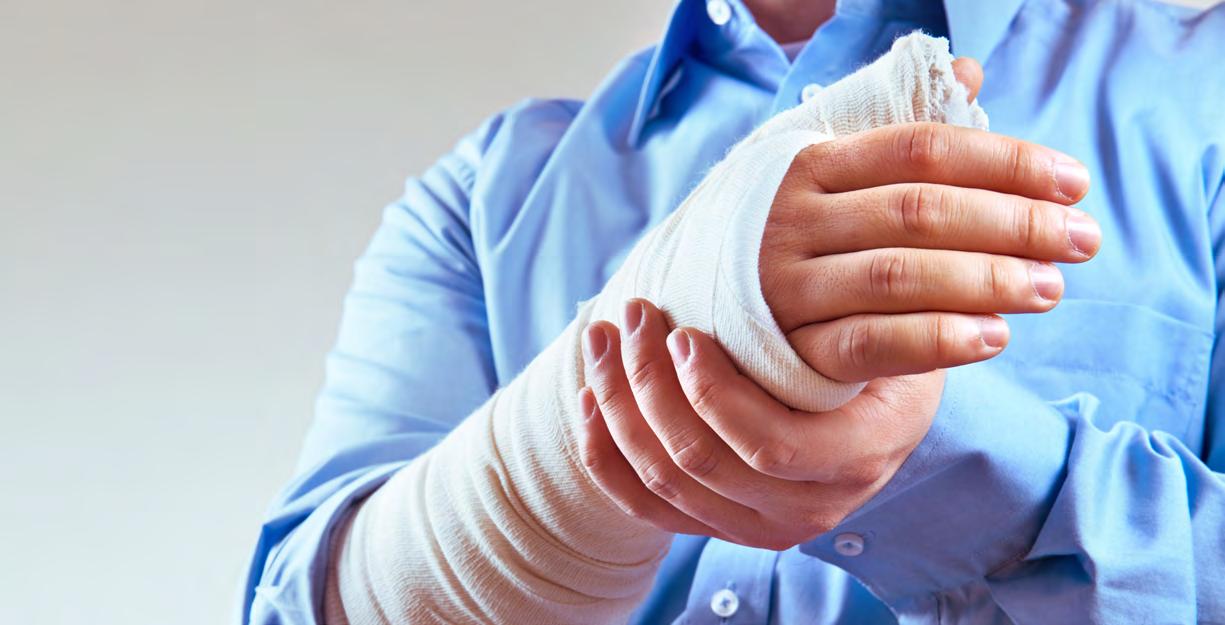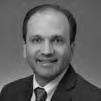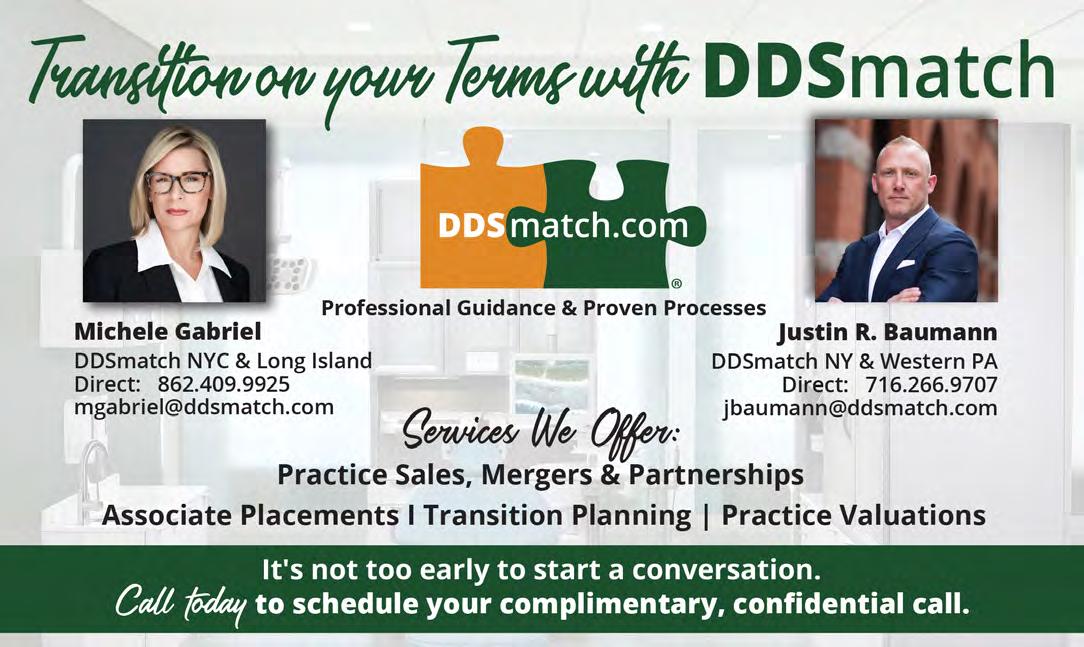
6 minute read
Perspectives
Don’t Let a Short-term Illness Knock You Out
Can your practice survive if you’re not there for awhile?
Stuart L. Segelnick, D.D.S., M.S., CDE
Most dentists have experienced some form of illness during their careers. There was even a time when working with a cold was considered standard practice for many solo dentists. Today, we better understand the ethical dilemma of working while sick, which can bring an increased risk to the health of our employees and patients and affect the dentist’s decision-making capacity. But an illness that causes the dentist to stay at home and not function could have a devastating effect on the practice.
There are many different types of aid the dentist might be entitled to during these trying times, such as disability insurance and social security disability. However, if the illness lasts for a short period of under a few weeks, there is no vehicle for recouping the economic loss. Looking into mitigating the financial and collateral damage of a short-term work interruption before the incident occurs may be a prudent course of action.
A few months ago, I personally had to deal with a health problem that closed my office. My gall bladder was the culprit. The gall bladder is used by our bodies to store bile and releases it when fatty food is being digested ( https://www. ncbi.nlm.nih.gov/books/NBK279386/ https://newsinhealth. nih.gov/2015/02/galled-gallbladder). Otherwise, it is not an organ that is necessary for survival, because in its absence, the liver, which produces the bile, will continue to do so at a slow rate, emptying into the small intestines.
My gall bladder was filled with stones, which I saw clearly on a sonogram and special MRI called a magnetic resonance cholangiopancreatography (MRCP) that the surgeon ordered. It had caused a few episodes of common bile duct obstruction, leading to severe crushing pain in my right chest and back—pain that had me doubled up and vomiting all night long. After the last attack, when my gall bladder became infected and almost had me hospitalized, I decided it was time to explore surgical options of removal (cholecystectomy), especially when my physician said it could become life-threatening.
Since it was a scheduled surgery, I had time to plan for my absence from the office. My surgeon had informed me that I could most likely return to work in five days, although most of my own online research pointed to two weeks. Patients were cancelled, and the staff was coached on what to do when I was away. They would manage the office while I was gone and call me if there was anything that couldn’t wait.
There are many consequences to being unable to practice even for a small amount of time. One of the first things you should do is have an emergency contingency plan. A very helpful website of the American Association of Disabled Dentists (AADD) has a well-thought-out Emergency Practice Continuity Care Plan, which you can find at https://disableddentists. org/2016/06/24/activate-your-practice-continuity-plan/. I contacted one of the founders of the AADD, Dr. Ron Marsh, who started the organization after having a stroke and finding the ADA was not helpful in his plight. Dr. Marsh and three other people who have experienced terrible health issues are available to support and counsel any dentist who has questions on how to proceed during the trying times of disability.
Dr. Marsh advised when purchasing your disability insurance, make sure there is a short-term disability clause, something that could have helped me in my situation. He also counseled:
“When purchasing disability insurance, do it now; never delay. And get the best policy you can afford. This is not the time to be cheap. It could be the best investment you ever make. Ensure it has an ‘own occupation clause,’ and be open to buying a second policy—yes, you can have more than one policy.”
He also stressed paying for your policy with post-tax dollars, which is a huge benefit. Otherwise, your benefits will be taxed. Dr. Marsh recommended buying a disability policy with a cost-of-living rider, along with the option to increase purchased benefits as your practice grows and you have a higher income. If there are lifetime benefits available, Dr. Marsh recommended purchasing them too; although costly, he said, “It is well worth it.” As a second backup, if you are not in a group practice, Dr. Marsh said make sure you get the practice an overhead rider, which will cover your rent, utility bills, insurance premiums for the practice and, even, your membership dues.
Dr. Marsh stressed that most disability policy benefits do not kick in for 90 days. Hope that you’ll get better before then; however, if you don’t, make sure while receiving your medical care to maintain “rock-solid documentation that you are disabled.” Also, Dr. Marsh said to make sure you stop working; if you don’t, it will weaken your claim. Always make sure you read your policy and then file a claim. Dr. Marsh suggests filing the claim yourself, and if you are denied benefits, then it’s time to hire an attorney and file an appeal.
During my recovery, I called my disability insurance carrier who said I had their premier plan, which made me happy until he continued that the policy would only begin paying out benefits after 60 days of disability. Since I was planning to be back to work much quicker than that, my disability plan would not cover my short-term absence. The agent suggested most dentists put away a couple of months of money, literally self-insuring these short events. He then compared the time away to taking a vacation. Needless to say, I was very upset to hear this analogy because my situation was incongruous to joyful times.
Being prepared for short- and longer-term illnesses at your office is extremely important to a dentist’s practice survival. Having a well-crafted emergency contingency plan will also help alleviate pressure from the stress of coping with a sudden illness and avoid additional mental anguish.
As I recuperated, I was reminded that without your health, everyone and everything else you love, and treasure may never be available. So, please, take care of yourself!

Dr. Segelnick is editor of the Second District Dental Society Bulletin and associate editor of The New York State Dental Journal. His “Perspectives” article first appeared in the November/December 2023 SDDS Bulletin.











